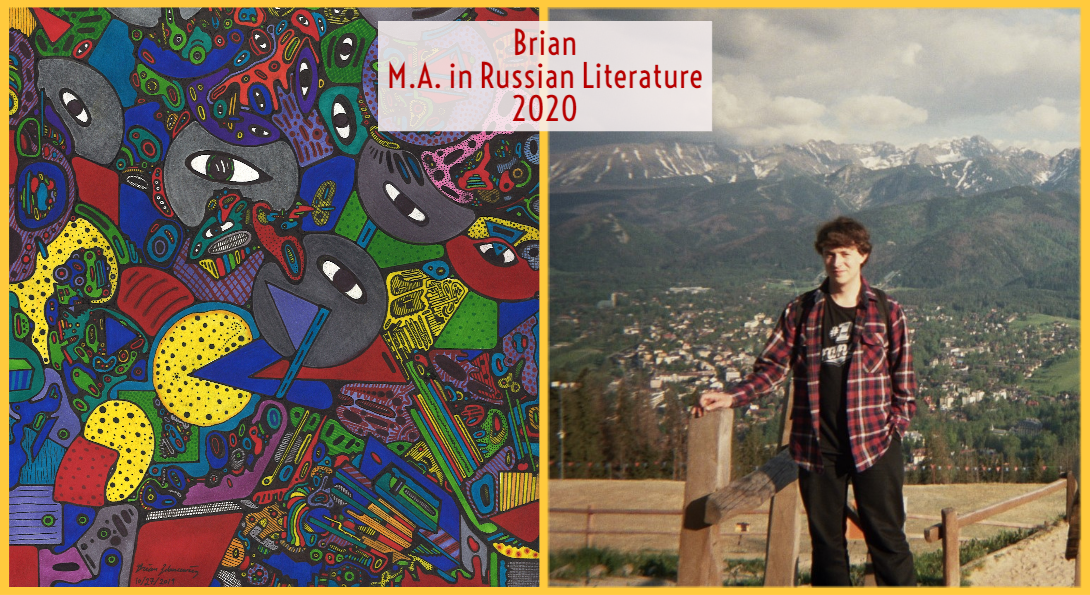Brian

Brian, UIC M.A. in Russian Literature, 2020
I think that my language story began with German language classes I took throughout high school. I quickly found that exploring a new language for its own sake was fun and exciting for me. In addition to opening up a world of German-language media, I loved the intellectual exercise of mastering grammar systems and creating things of my own—even just silly comics in my notes for other classes—in a new language. Around this time, I also developed an interest in conlanging—building languages of my own with writing systems and words and whatnot. In hindsight, I see that as a clear portent of my lifelong enthusiasm for structural linguistics.
Later on, I began to explore Slavic languages more. Although initially I was mostly interested in Polish—a large percent of my family tree as well as my surname (Zdancewicz) are Polish—I found myself exploring Russian partially as a consequence of reading Dostoevsky’s Crime and Punishment for a literature class during my senior year of high school. I discovered Russian music, which eventually led me to Yugoslavian and Polish music as well. By this point, I was organically acquiring bits and pieces of Russian, Polish, and Serbian through song lyrics, but had not yet had any opportunity to learn in a controlled setting.
Soon, however, I began taking courses in Russian during undergraduate study at Penn State. By senior year, Polish courses appeared for the first time at my university, and I eagerly took the opportunity to learn Polish alongside Russian. This was a perfect opportunity to pursue my interest in historical linguistics—synchronic development, phonetic and grammatical changes, connections and divergences between languages of a single “family”, foreign lexical influences, and so on. In addition, I began seriously to pursue abstract drawing, and to the present day I often incorporate fragments of Russian, Polish, German, Finnish, and other text into things I make (which, if you are curious, you may peruse on my instagram.)
In due time, I found myself at UIC. Besides my graduate studies in literature (Russian, Polish, and more), I now teach 101 and 102 level Russian classes and work for the LCLC. At all levels—student, research assistant, and instructor—I feel that I am part of a vibrant and interesting community. Especially in that latter role, I hope that I successfully encourage my students to build and pursue their own language stories. As teachers, we have a real opportunity not just to impart information and skills—nouns, adjectives, verb conjugations, and so on—but to contextualize these abstract things, making them fun and memorable for students who take our classes. Although it’s nice to see my students’ skills improve over time, helping them access and enjoy poems, songs, literature, TV, films, memes, and other cultural products that manifest through language is what really makes me feel like I’ve done a good job.